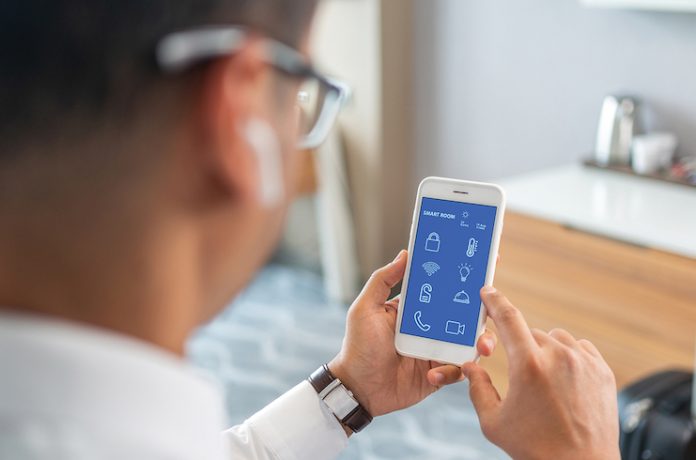
The Internet of Things (IoT)—consisting of web-enabled physical objects that collect data and control processes—has seen diverse applications in the hotel industry. IoT devices allow the collection of guest data that can ultimately be used to improve and personalize the guest experience. Todd Johnstone, CEO of Allbridge, a property technology solutions provider that has been in the hospitality space since 1989, observes that IoT adoption has greatly increased in the last few years. “We’re seeing applications ranging from TVs to automated door locks to parking systems to elevators to occupancy sensors and more. There is a huge opportunity to connect these devices.” He shares five key tips for hoteliers looking to explore IoT:
1Plan the System Upfront
With a new-build hotel or major renovation, MEP components are fully planned before the project starts. Similarly, the IoT network should be mapped out ahead of time as comprehensively as possible. “You want it to be seamless for your guests, and the way to do that is to plan the technology upfront,” Johnstone maintains. “The lifetime cost of doing it that way is much lower. Some hoteliers send out RFPs for different system components trying to drive to the lowest cost for each. Many of these installations don’t end up connecting well, which is a huge burden to the hotelier.”
2Streamline the Number of Vendors
Ideally, a hotelier will partner with one well-connected vendor who has the experience to be able to design, install, and then support all the devices. “It doesn’t mean they have to be an expert on door locks. But they’ve got a door lock partner they work with, or parking garage partner or cybersecurity partner,” says Johnstone. “There is a huge advantage to having one form of ownership who is as passionate about the guest experience as you are.”
3Make Assessments with a Partner
For subsequent network assessments, “I would recommend not pursuing that project internally, because costs will skyrocket,” Johnstone says. “For many properties, assessing an IoT network is not a core competency. They need a partner to do that assessment at an affordable cost per room and then put a logical plan in place for upgrades.”
4Focus on Guest Expectations
Johnstone also warns against getting swept up in the romanticism of IoT solutions and losing focus on client preferences. “Listen to your guests and customers. Don’t get caught up in what you think you need or the promise of everything IoT can bring,” he says. “Start with your network and your bandwidth and do an honest assessment of requirements and build from there.”
5Ensure Proper Support
As with any tech system that impacts the guest experience, vendor support is crucial. “I would not implement any technology without being crystal clear that they will provide ongoing support for not only the performance of the infrastructure, but also on any upgrades you may want to do during the system’s lifecycle,” Johnstone advises.











